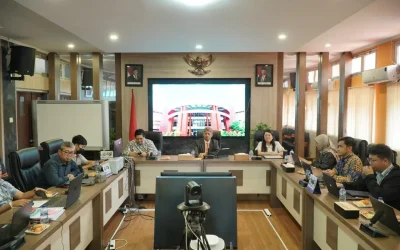A new study titled “A Review of Carbon Tax to Develop the Scheme for Indonesia” highlights the importance of implementing a carbon tax in Indonesia as a strategic measure to reduce carbon emissions, particularly given the country’s high per capita emissions from coal. This research was conducted by Prof. Bulan Prabawani, S.Sos., M.M., Ph.D., a lecturer at the Department of Business Administration, Universitas Diponegoro, along with her research team.
The study emphasizes that although Indonesia has adopted a carbon tax policy as part of its efforts to achieve carbon neutrality by 2060, the implementation of this policy still faces various challenges. One of the primary challenges is Indonesia’s dependency on fossil fuels, coupled with complex economic dynamics. Currently, the carbon tax rate in Indonesia is considered too low to effectively drive significant emission reductions.
The research utilized secondary data from 30 countries that have implemented carbon taxes, analyzing the impact of population, Gross Domestic Product (GDP), as well as the use of fossil, renewable, and nuclear energy on total emissions and carbon tax rates. The findings reveal that while a carbon tax may not have a direct impact on reducing emissions, it does influence the level of fossil fuel consumption. Therefore, the study recommends that the Indonesian government exercise caution in setting carbon tax rates and adopt a more proactive approach to developing renewable energy sources.
Furthermore, the study stresses that the carbon tax should not be the sole instrument for reducing carbon emissions. The government is encouraged to consider expanding the scope of the Emissions Trading System (ETS) and increasing investments in renewable energy to more effectively achieve long-term environmental goals.
Source:
Prabawani, B., Sehier, C., Hanani, R., & Hadi, S. *A Review of Carbon Tax to Develop the Scheme for Indonesia*. Available at SSRN 4805011.
About the Author:
Prof. Bulan Prabawani, S.Sos., M.M., Ph.D., is a lecturer at the Department of Business Administration, Universitas Diponegoro. She specializes in environmental policy and business administration, with a particular focus on sustainability issues and the economic impacts of environmental policies.





0 Comments